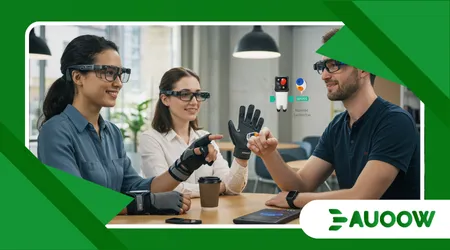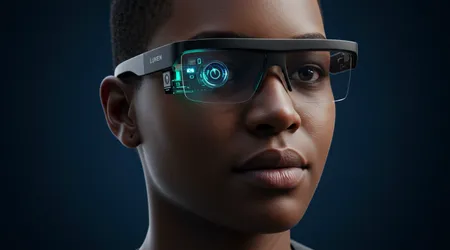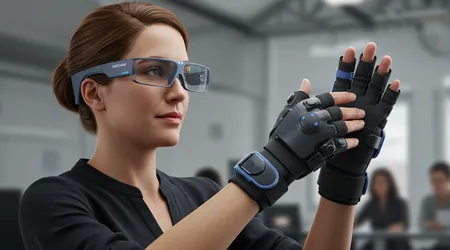The Most Promising Startups in Assistive Innovation

The most promising startups in assistive innovation are reshaping how we address accessibility, leveraging technology to empower individuals with disabilities.
In 2025, these companies stand out not just for their cutting-edge solutions but for their commitment to real-world impact.
From AI-powered wearables to robotics easing daily tasks, they’re bridging gaps that traditional systems have long ignored.
This article dives into the pioneers driving this change, exploring their unique approaches and why they matter.
Why should you care about these startups? Because they’re not just building tech they’re redefining inclusion.
Assistive technology has evolved beyond basic tools like hearing aids or screen readers. Today, it’s about intuitive, scalable solutions that integrate seamlessly into lives.
Startups in this space are tackling complex challenges vision impairment, mobility issues, cognitive barriers with creativity and precision. According to the World Health Organization, over 2.5 billion people globally need assistive technology, yet access remains limited.
The most promising startups in assistive innovation are addressing this gap, blending empathy with engineering to create tools that don’t just assist but transform. Let’s explore the leaders setting the pace in 2025.
Visionary Solutions for Visual Impairment
Lumen, a standout among the most promising startups in assistive innovation, unveiled its AI-powered glasses at CES 2024.
These glasses, designed for the visually impaired, use self-driving car tech to guide users. They’re like a digital guide dog, offering real-time navigation cues.
With clinical trials ongoing, Lumen aims for market entry in 2025. Their focus on scalability addresses the global shortage of guide dogs, which serve only 1% of the blind population.
The glasses don’t just detect obstacles; they adapt to user habits, learning preferred routes. This personalization sets Lumen apart, ensuring independence without overwhelming users.
++ How Assistive Tech Is Bridging the Digital Divide
Imagine navigating a busy street with confidence, guided by a device that feels like an extension of you.
The most promising startups in assistive innovation like Lumen prioritize user-centric design, making technology intuitive.
Another player, OrCam Technologies, enhances its MyEye device with conversational AI. It reads text, recognizes faces, and answers questions on-demand.
This evolution makes OrCam a versatile companion for the visually impaired. By integrating gesture-based controls, it feels less like a gadget and more like a partner. These startups show how vision tech can empower, not just assist.

Robotics Redefining Mobility
GyroGear, one of the most promising startups in assistive innovation, debuted its hand-stabilizing glove at CES 2024.
Designed for Parkinson’s patients, it uses mechanical gyroscopes to reduce tremors.
This glove isn’t just tech it’s a lifeline for the 200 million people with hand tremors globally. GyroGear’s focus on precision makes daily tasks like writing or eating achievable again.
Unlike bulky medical devices, GyroGear’s glove is sleek, wearable tech. It’s a game-changer for those who’ve felt limited by their condition.
Also read: Real-Time Captioning Tools You Need to Know About
Picture a chef with Parkinson’s slicing vegetables with steady hands GyroGear makes that possible. The most promising startups in assistive innovation like this blend engineering with human needs, prioritizing dignity.
CMR Surgical’s Versius robot, another innovator, transforms minimally invasive surgery. Its modular design assists surgeons, improving outcomes for patients with mobility issues.
By reducing recovery times, Versius empowers patients to regain independence faster. These robotic solutions highlight how startups are pushing boundaries in assistive mobility.
AI-Powered Cognitive Support
MagicSchool, among the most promising startups in assistive innovation, uses AI to revolutionize education for students with cognitive challenges.
Its platform creates tailored lesson plans and assessments, adapting to individual needs.
With over 2 million educators using it globally, MagicSchool proves AI can scale inclusion. It’s like a personal tutor for every student, ensuring no one is left behind.
The platform’s MagicSchool for Students fosters AI literacy, teaching kids to use tech responsibly. This dual focus supporting both educators and students sets it apart.
For a dyslexic student struggling with reading, MagicSchool’s tools adjust content dynamically, boosting confidence.
Read more: The Future of Smart Wheelchairs: What’s Coming Next
The most promising startups in assistive innovation like MagicSchool show AI’s potential to personalize learning.
Ryan, an AI-enabled socially assistive robot, supports aging adults with cognitive decline. By engaging users in memory-enhancing activities, it reduces caregiver burdens.
Its conversational abilities feel human, not mechanical, fostering emotional connections. These startups demonstrate AI’s role in making cognitive support accessible and empathetic.
Digital Accessibility for All
Neatebox’s WelcoME app, one of the most promising startups in assistive innovation, redefines venue accessibility. Users create profiles detailing their disabilities, triggering staff alerts upon arrival.
This ensures tailored assistance, from guiding a wheelchair user to supporting someone with autism. In the UK, where 1 in 5 people have a disability, Neatebox fills a critical gap.
The app’s geofencing tech is a masterstroke, notifying venues proactively. It’s like having a personal advocate in your pocket, ensuring seamless experiences.
Neatebox’s founder, a former Guide Dogs UK instructor, built it from lived experience, grounding it in authenticity. The most promising startups in assistive innovation prioritize real-world utility over flashy tech.
Limitless Travel, another innovator, offers an online platform for accessible holidays. It curates trips for people with disabilities, ensuring every detail transport, accommodation is inclusive.
For someone with mobility issues, booking a trip becomes empowering, not daunting. These startups prove digital tools can make inclusion practical and scalable.
The Future of Assistive Innovation

The most promising startups in assistive innovation share a common thread: they solve real problems with empathy-driven tech. But what’s next?
Funding is surging Linknovate reports assistive tech startups raised over $1.5 billion in 2024 alone. This capital fuels bolder solutions, from brain-computer interfaces to bioresorbable implants.
The future lies in integration, where assistive tech becomes invisible, seamlessly woven into daily life.
Startups like Precision Neuroscience are exploring brain-computer interfaces to restore motor function for paralysis patients.
Their work hints at a world where disabilities don’t dictate limitations. Meanwhile, 4D Medicine’s bioresorbable implants dissolve post-healing, reducing surgical risks.
These advancements signal a shift toward proactive, not reactive, assistive tech.
The challenge? Scaling without losing the human touch. The most promising startups in assistive innovation must balance tech with empathy, ensuring solutions feel personal.
As these companies grow, their ability to listen to users will define their success. The future is bright, but it demands authenticity.
Table: Key Assistive Tech Startups in 2025
| Startup | Focus Area | Key Innovation | Funding (2024) | Impact |
|---|---|---|---|---|
| Lumen | Visual Impairment | AI-powered navigation glasses | $50M | Scalable alternative to guide dogs |
| GyroGear | Mobility | Hand-stabilizing glove | $30M | Reduces tremors for Parkinson’s |
| MagicSchool | Cognitive Support | AI-driven educational tools | $75M | Personalizes learning for 2M+ |
| Neatebox | Digital Accessibility | WelcoME app for venue assistance | $10M | Enhances venue inclusivity |
Why These Startups Matter
The most promising startups in assistive innovation aren’t just building products they’re reshaping society.
They challenge the status quo, proving accessibility isn’t a niche but a universal need.
Take a wheelchair user navigating a new city with Neatebox or a visually impaired person reading a menu with OrCam. These tools don’t just assist; they empower.
Their impact extends beyond users. Caregivers, educators, and businesses benefit from reduced burdens and inclusive systems.
Consider GyroGear’s glove: it frees families from constant assistance, giving them peace. These startups are like architects, building bridges to a more inclusive world.
Investors are noticing. Venture capital in assistive tech is growing, with firms like Andreessen Horowitz backing innovators like Safe Superintelligence Inc.
This financial confidence signals a maturing market. The most promising startups in assistive innovation are proving that inclusion is profitable, not just noble.
Frequently Asked Questions
What makes a startup “promising” in assistive innovation?
A promising startup combines innovative tech, user-centric design, and scalability to address unmet accessibility needs effectively.
How do assistive tech startups ensure user trust?
They prioritize transparency, user feedback, and clinical validation, like Lumen’s trials with 250+ visually impaired users.
Are these technologies affordable?
Many startups, like Neatebox, focus on scalability to reduce costs, though pricing varies based on market entry.
How can I stay updated on assistive tech?
Follow industry blogs, attend events like CES, or explore platforms like Crunchbase for real-time startup insights.
This article highlights the most promising startups in assistive innovation, showcasing their potential to redefine accessibility in 2025.
From Lumen’s navigation glasses to GyroGear’s tremor-stabilizing glove, these companies blend empathy with cutting-edge tech. They’re not just solving problems they’re empowering lives.
As investment grows and technology evolves, these startups will shape a future where inclusion is the norm, not the exception. Stay tuned, because the next big breakthrough is already in the works.
